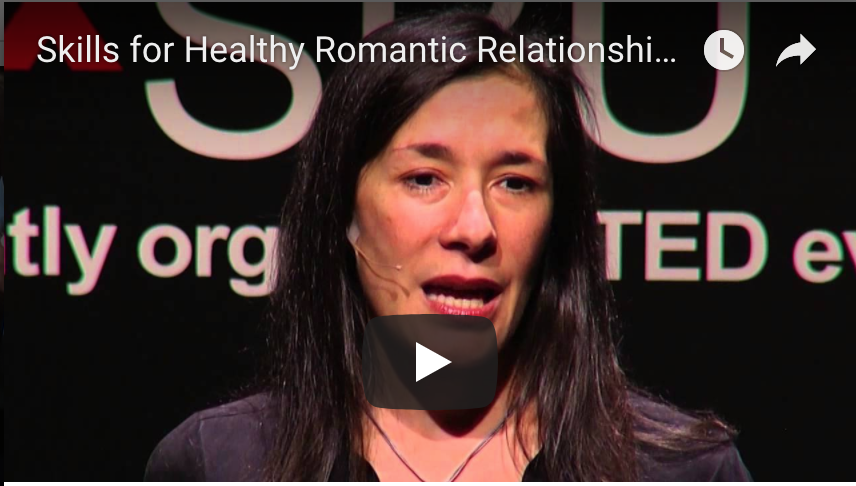DNA of a Successful Marriage
We need to study successful marriages for the same reason scientists study sharks. Sharks have existed for 450 million years, and we need to understand how their genetic makeup has allowed them to live through the rise and fall of countless other species, such as dinosaurs. In a time where so many marriages fail, an understanding of the DNA of a successful marriage can help us resolve major problems and avoid divorce.
Psychology of Happy Couples
Lists of the habits of happy couples are all over the internet, and they include many of the same items: compromise, communication, optimism. But even more important than good habits is the psychology underlying them.
In the above video, Dr. Joanne Davila of Stony Brook University outlines three psychological strengths which people in happy relationships cultivate.
- Insight: the understanding of who you and your partner are as individuals and why you behave the way you do. With insight you can:
- Anticipate the consequences – good or bad – of your behavior
- Learn from and correct your mistakes
- Understand what you need in a relationship.
- Mutuality: the understanding that both people in a relationship have needs and both their needs matter. With this understanding you can:
- Convey your needs in a clear, direct fashion
- Be more willing to meet your partner’s needs
- Factor your needs and those of your partner into pertinent decisions.
- Emotion regulation: regulating your feelings in response to things that happen. By regulating your emotions you can:
- Stay calm and keep things in perspective
- Tolerate uncomfortable feelings and not act out on impulse
- Maintain a sense of self-respect and commitment to your needs.
Financial Issues
Some surveys have 57% of divorced couples citing money problems as the primary reason for their divorce; some researchers maintain that such problems are symptoms of something deeper. Either way, couples who are on the same page in terms of managing money are less likely to divorce.
In an article on Forbes.com, a Senior Financial Planner tells us of a few common money problems that affect couples:
- Materialism: valuing material things over one another.
- Conflicting money values: spendthrifts and big spenders have a hard time getting along.
- Superimposed Framework: traditionally, husbands take on certain roles within a marriage, and wives certain others. But when this paradigm doesn’t fit, successful couples are quick to discard it.
- No plan: Successful couples develop a financial plan, allowing them to understand why they manage their money the way they do and when they can expect to meet their goals.
Biology
Now that we’ve considered the DNA of a healthy relationship, let’s take a quick look at how actual DNA affects relationships – because, believe it or not, it does.
Serotonin transporter gene
The serotonin transporter gene regulates serotonin in the brain. As serotonin has a lot do with our emotional well being, a better understanding of it can help us understand our emotions.
Two common variations of this gene are the long allele and the short allele. Researchers have found that people with the short allele tend to exhibit a greater emotional response toward an event. If they are watching a comedy, for example, they are likely to laugh harder than someone with the long allele. The flip side is that, in difficult situations, people with the short allele have a harder time. The difference is practically negligible in isolated instances, but through the ups and downs of even a successful marriage, those who are more sensitive to their environment are more likely to struggle.
What does this say about your marriage?
Many with the short allele have experienced long and fulfilling marriages, and many with the long allele have gotten divorced. We can’t change our DNA, but we can adapt. Adaptation is an evolutionary term, but we can adapt on a daily basis as well – it’s called compromise, and there’s a reason why that word appears on every “habits of happy couples” list.
If an inability to compromise is driving a wedge between you and your partner, consider marriage counseling. Because you know who was able to adapt? Sharks. You know who wasn’t? Dinosaurs.
No matter the state of your current relationship, legal counsel is just a phone call or email away. Be happy, be healthy, and know your rights.
